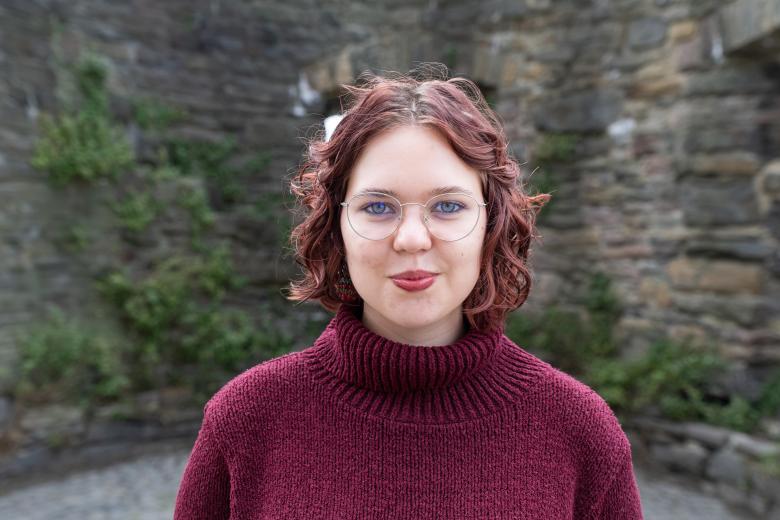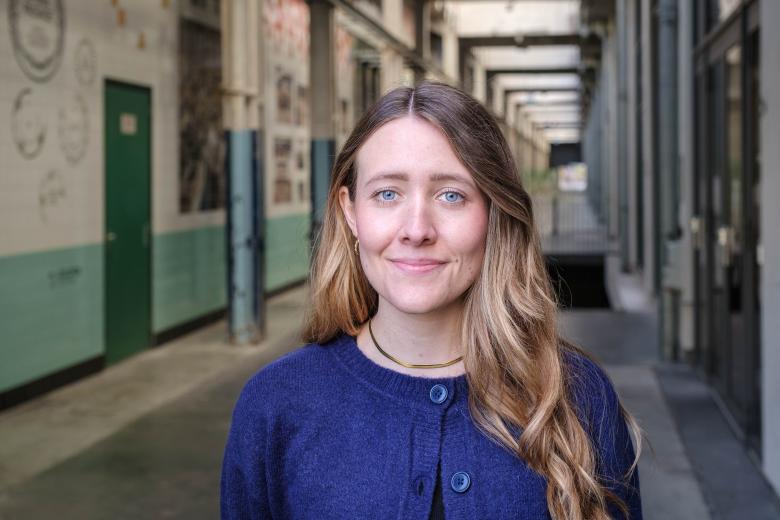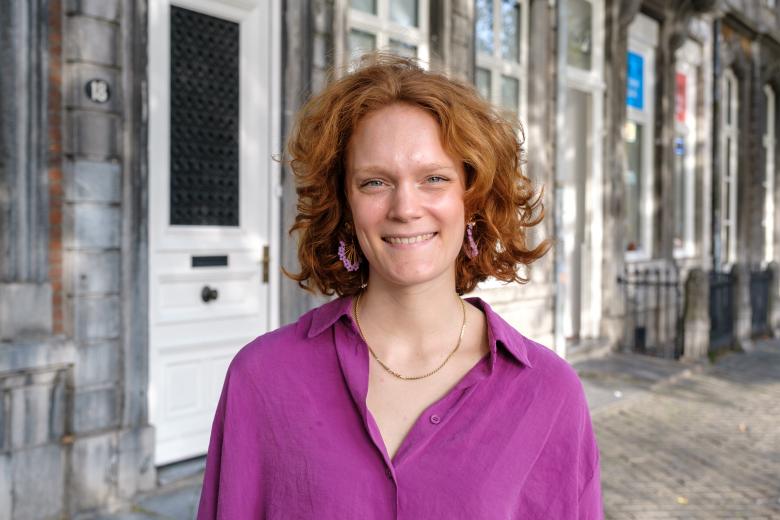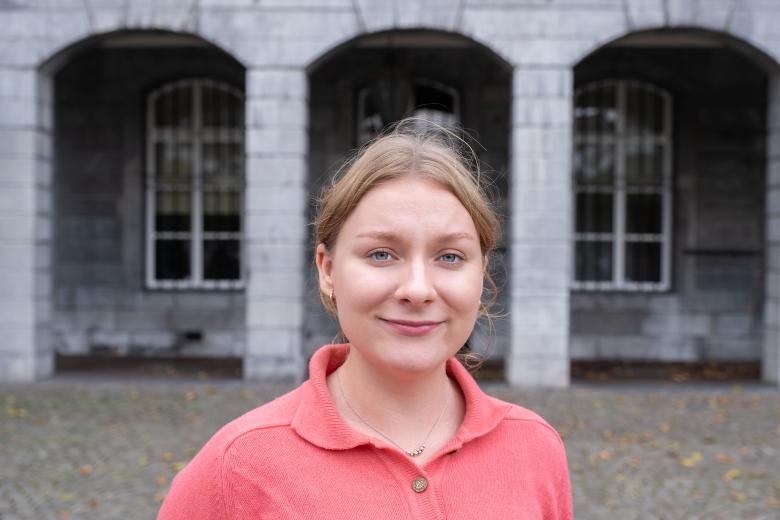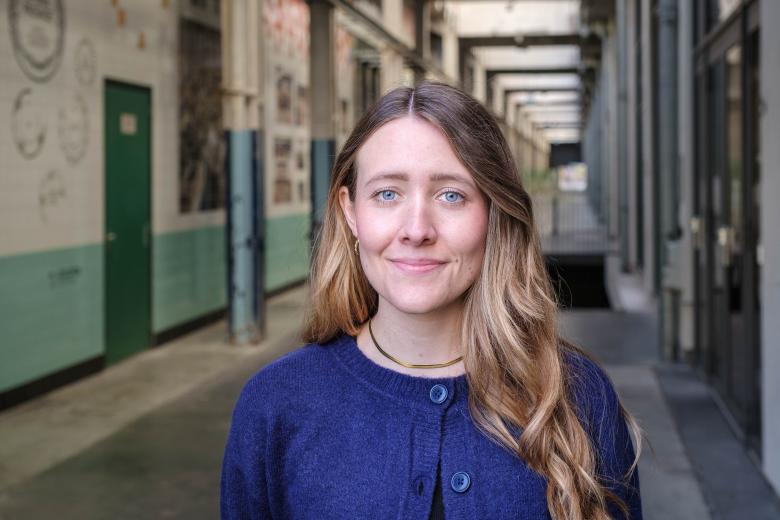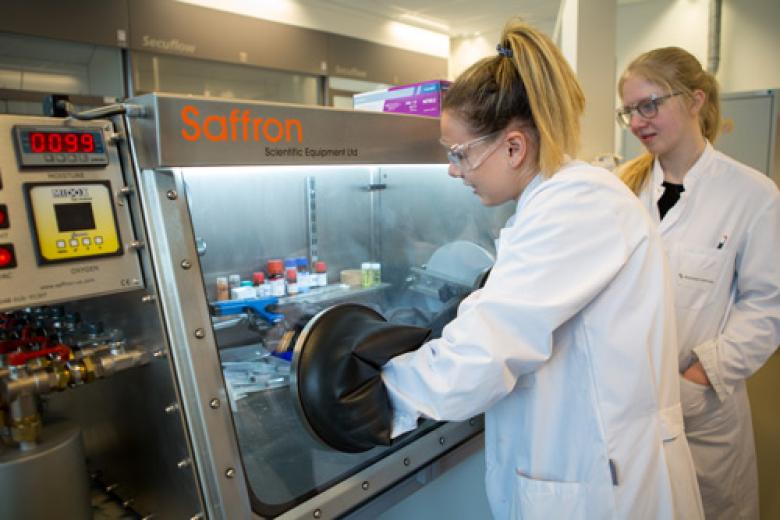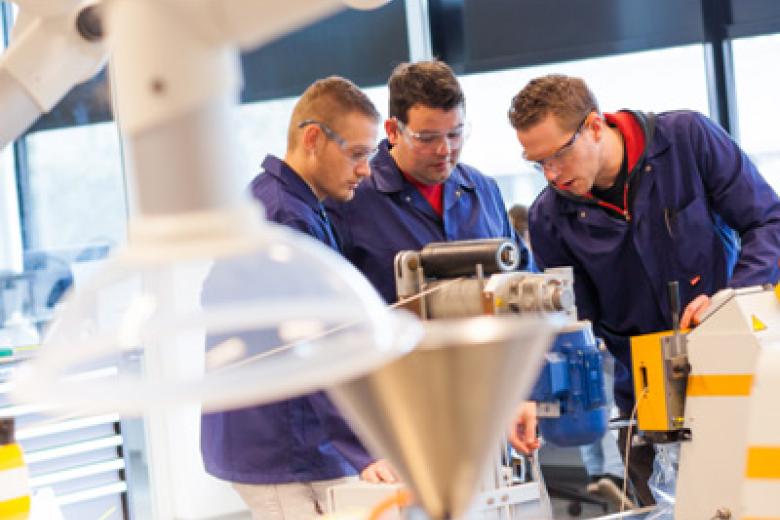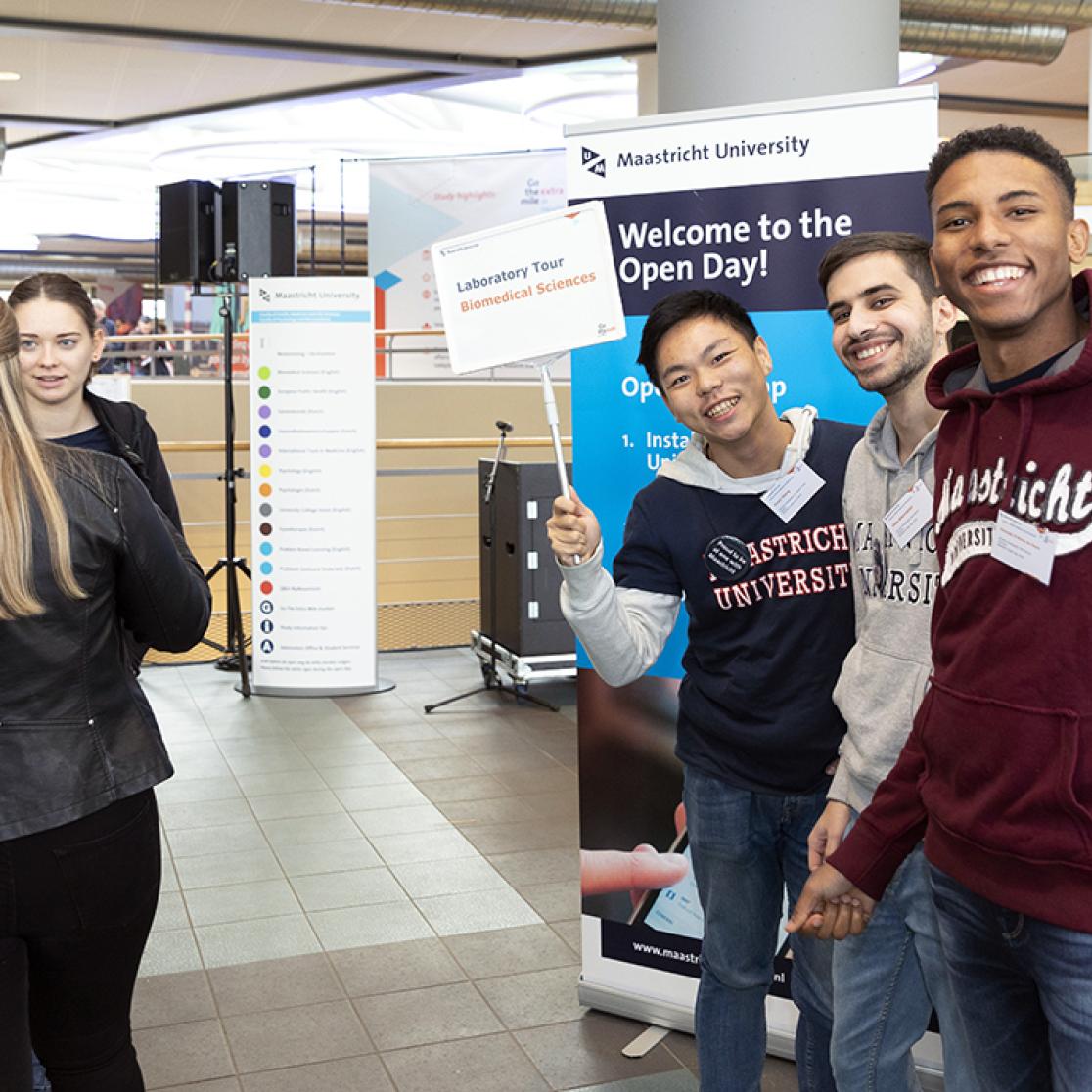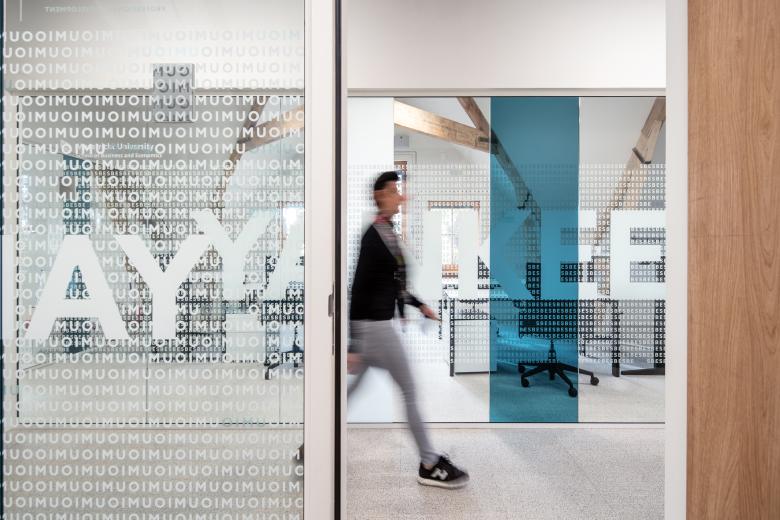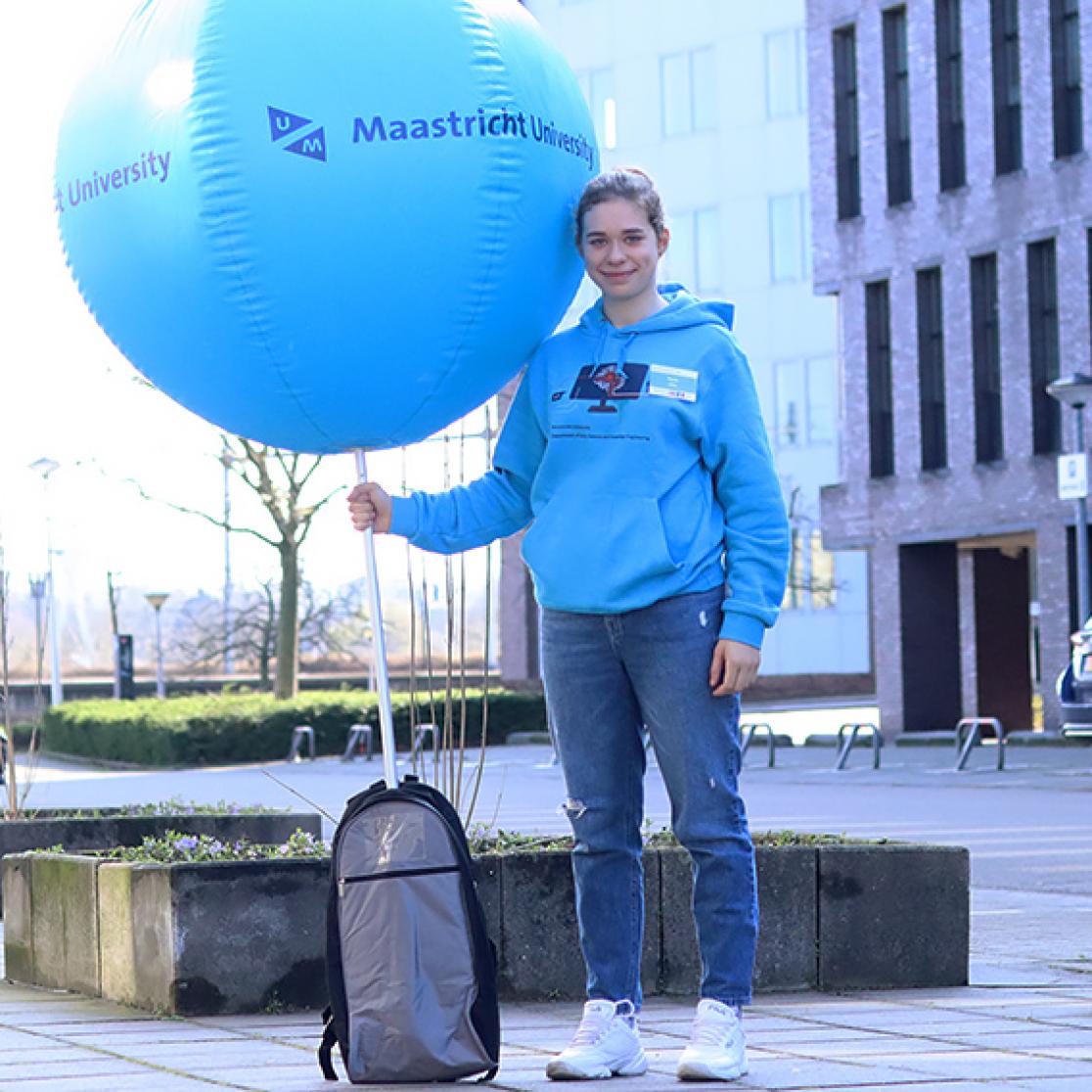It started with Carte Blanche
Before we have even found a place to sit, we are already deep in conversation, discussing the annual shareholder meeting that is to take place this weekend on the ski slopes of Ischgl. Work and private affairs mix effortlessly. There are no official office hours for someone who is self-employed, and Haike's business associate is his friend and former fellow student Ruurd van der Weide. Together they started their adventures in entrepreneurship in Maastricht, when they founded the company Carte Blanche, renting out blackjack tables for student parties. They were also instrumental in launching a line of UM merchandise including hoodies, T-shirts and mugs. In a time where more and more international students found their way to Maastricht, that turned out to be a true gold mine.
'One project led to another, even long after we had obtained our degrees', says Haike. The two friends kept in touch, both on a personal and on a business level. Ruurd moved to Berlin, where he used his expertise to help Dutch companies gain a foothold on the German online market. Shortly after that, Haike came aboard to run the account management side of things from Amsterdam. Together they now run Fingerspitzengefuhl. Responding to my question of whether it wouldn't be better to keep business and friendship separate, Haike simply answers that he doesn't know any better than this. Of course, keeping the balance is your own responsibility, as is tipping the scale back towards the friendship side of things when the balance seems to be pulling the other way.
German business
'I actually advise most companies against taking their business to Germany'. But isn't that sabotaging your own business, I wonder out loud. 'Not really. I advise these relatively small companies to focus their efforts on the Dutch market first. The online market in Germany requires durability and reliability. German consumers are sticklers for certifications and standards like Amazon has, and not every company can compete with that. Because we usually work for commission, we always research everything thoroughly and create a strategy for a lasting partnership. That is why we prefer to focus on businesses that stand a really good chance.'
The company is under Dutch management, but has mostly German employees. 'That can sometimes cause friction. We may be neighbours, but there are still some fundamental differences.' Examples include the German inclination towards hierarchic structures versus a more horizontal organisation, theory versus creativity and precision versus nonchalance. Colouring outside the lines is something much more suited to the Dutch, as Haike noticed back in his university days. German students always came fully prepared, while Dutch students took everything in their stride. In fact his colleagues are a perfect blend of these two attitudes.
Southern Open
Incidentally, Maastricht was not a particularly deliberate choice on Haike's part. Coming from the province of Brabant, Maastricht seemed like a charming town and it would likely be a good fit culturally, too. It was essentially the path of least resistance. He lived on the Lenculenstraat, a stone's throw away from the faculty, which might just be the most idyllic street in all of Maastricht, with its cobblestones and old buildings. In the end, PBL seemed the right fit for his way of learning. After discussions during tutorials had piqued his curiosity, he wanted to know more about the theory behind it all. 'There is not just one standard solution, first you work towards it and the theory comes in after that.’ When he had paid back his student loan in full, he decided to continue setting aside the same amount of money each year and donate it to the University Fund Limburg, which supports UM education and research. Haike: 'I'm happy to do that for my alma mater.'
Occasionally he makes his way back to Maastricht. In honour of his own golf club, for instance, called 'the Southern Open', which consists of a group of former fellow students and friends who regularly visited them in Maastricht. For his next trip down memory lane, though, he promised to find the time to visit the university.
By Charlotte Groven, February 2017




